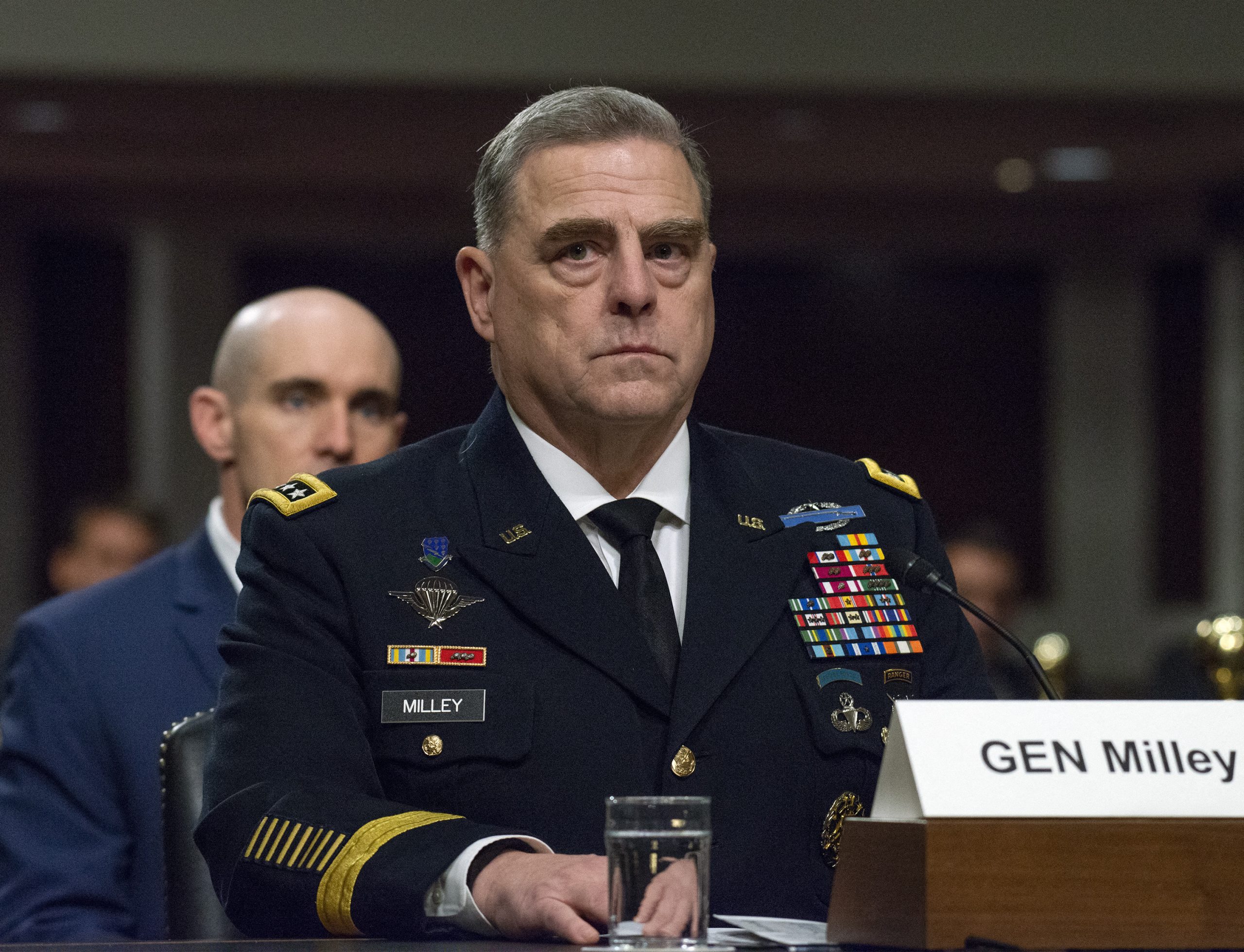
Lauren Moye, FISM NEWS
[elfsight_social_share_buttons id=”1″]
Chairman of the Joint Chiefs of Staff Mark Milley broke his silence on Friday, defending his secret phone calls to China.
“These are routine calls in order to discuss issues of the day, to reassure both allies and adversaries in this case, in order to ensure strategic stability,” Milley told The Wall Street Journal.
Milley also expressed his desire to use his testimony before the Senate Armed Service Committee on Sept. 28 to discuss the matter, rather than use media to defend himself.
The calls in question were revealed in the upcoming book ‘Peril’ by Washington Post investigative writers Bob Woodward and Robert Costa. Excerpts from the book tell that General Milley made phone calls twice to his Chinese counterpart General Li Zuocheng of the People’s Liberation Army in the last months of Donald Trump’s presidency. These calls took place on Oct. 30 and Jan. 8.
“If we’re going to attack, I’m going to call you ahead of time,” the authors claim Milley said in one of these calls.
The reported details of these calls have brought Milley both criticism and defense. Republicans and some former generals have called for Milley’s resignation and have labeled his actions as treasonous. Others, including the current White House administration, claim Milley has done nothing wrong.
Joint Staff Spokesperson, Col. Dave Butler also released a statement on the matter:
His calls with the Chinese and others in October and January were in keeping with these duties and responsibilities conveying reassurance in order to maintain strategic stability. All calls from the Chairman to his counterparts, including those reported, are staffed, coordinated and communicated with the Department of Defense and the interagency.
General Jack Keane also told Fox’s The Story, “I think these are responsible actions that are being taken, not the contrary. Based on what the Pentagon is reporting and the feedback we’re getting from Jennifer Griffin…I don’t see anything that is undermining the civilian control of the military.”
However, former Acting Defense Secretary Chris Miller could not confirm or deny knowledge of the details of these calls. Miller said that if the book’s reported conversations were true that “it would be completely inappropriate and completely contrary to civilian oversight of the military if he was conducting foreign policy activities or national security activities of that nature, but I don’t know if that call is accurate. I don’t know if it’s true or not.”
Others, like retired Lt. General Keith Kellogg, expressed concerns about the potential erosion of democracy. Kellogg wrote in a New York Post Opinion piece:
Any action on the part of the chairman of the Joint Chiefs that gives the impression that he has traveled outside his lane, however slight, should be met with swift and severe recourse. This is not political; this is about the preservation of our democracy.
He further added that utilizing phone calls to reassure political enemies “implies that the military, in fact, calls the shots — not the Commander-in-Chief. Any undermining of the civilian control of the military is problematic; this was dangerous.”
Milley was already set to appear before the Senate Armed Service Committee on Sept. 28 as a participant in the Afghanistan Oversight Hearings. He is now also anticipated to also address questions regarding these reported phone calls.
